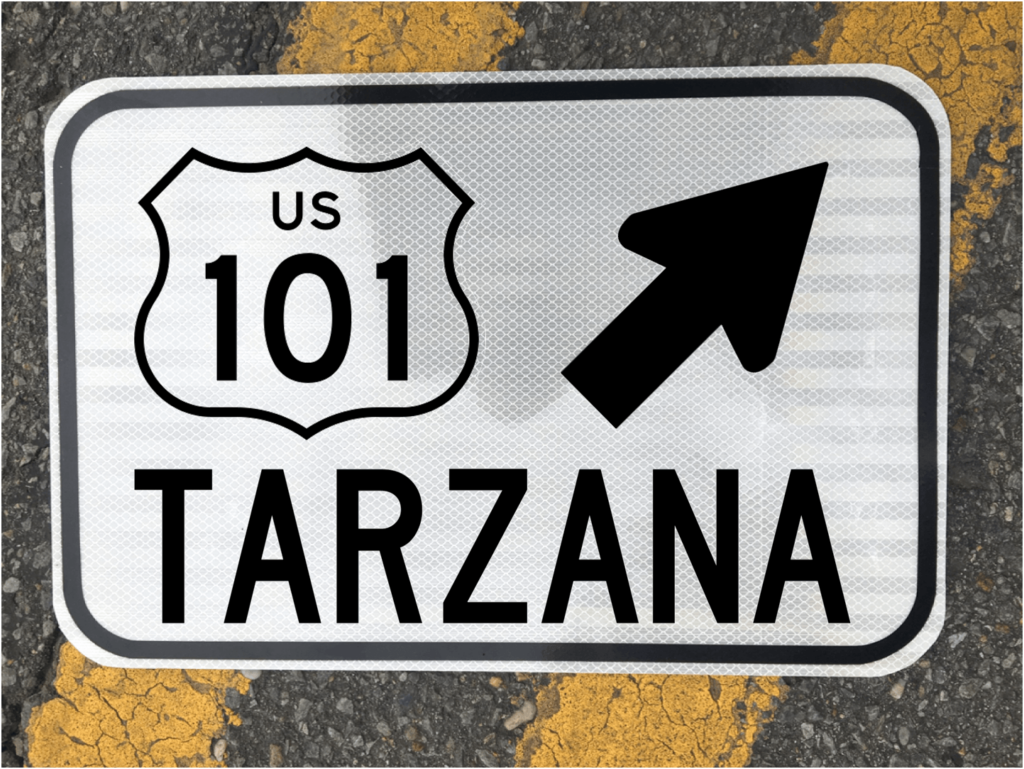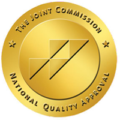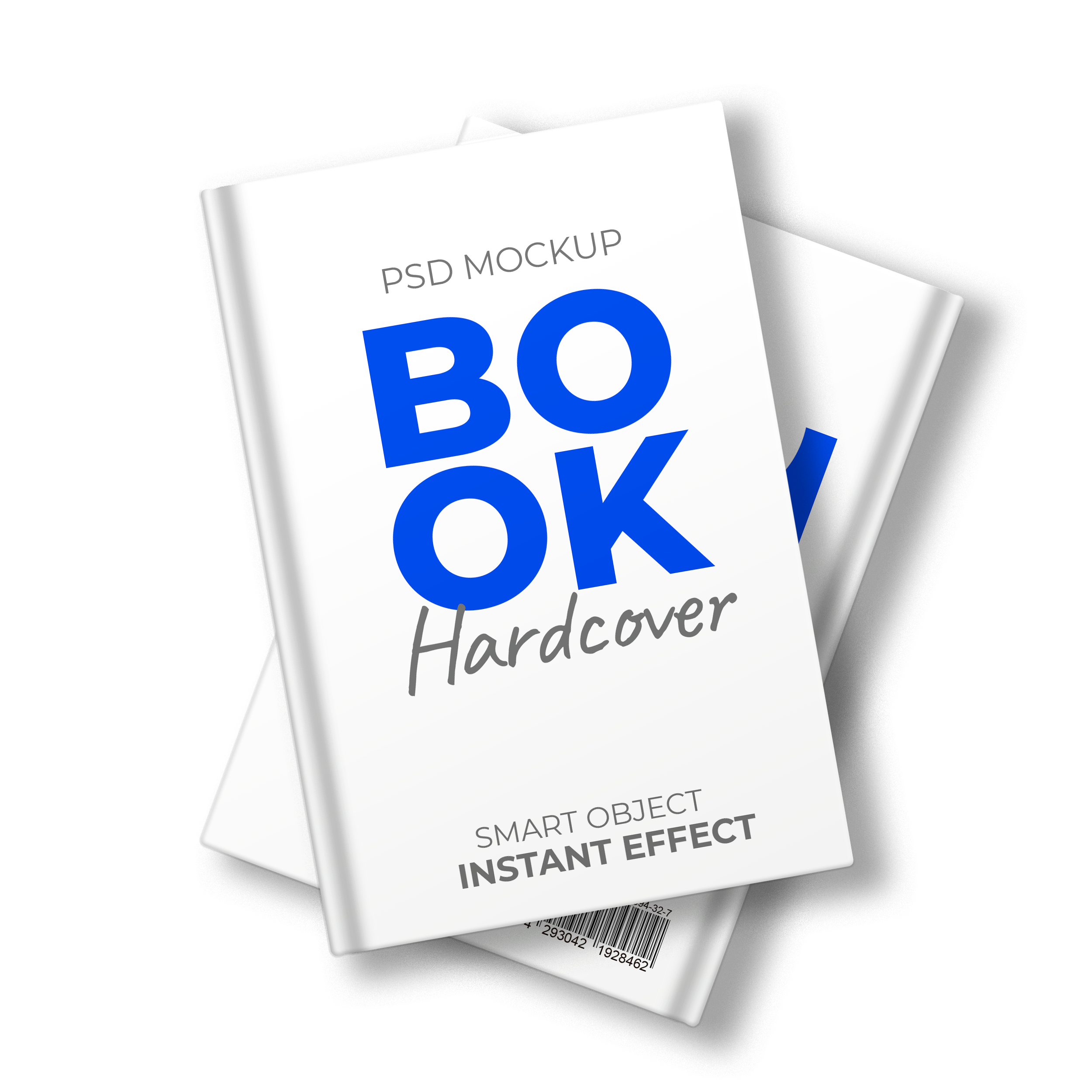Drug and alcohol detox are critical steps toward recovering from addiction. In Tarzana, California, comprehensive treatment options are available to address these needs. You’ll need a comprehensive understanding of the significance behind drug and alcohol detox and make an informed choice regarding the most suitable facility. This guide aims to provide valuable insights into the drug and alcohol detox process in Tarzana. But first, let’s explore what drug and alcohol detox entails and why it is essential. Drug and alcohol detox is the initial phase of addiction treatment, focusing on the safe and supervised elimination of substances from the body. This process helps to manage withdrawal symptoms and prepares them for further treatment and rehabilitation.
Tarzana holds a significant reputation for addiction treatment, offering a range of specialized facilities and programs. The location provides a serene and supportive environment conducive to recovery. The city is known for its well-established addiction treatment centers, experienced professionals, and evidence-based therapies. Selecting the right detox facility in the recovery process matters when considering outcomes. Factors such as accreditation, licensing, expert staff, customized treatment plans, evidence-based therapies, aftercare, and insurance coverage are essential considerations when choosing a facility.
Stages of Detox
The drug and alcohol detox process typically includes several stages: evaluation and assessment, medical stabilization, withdrawal management, and psychological and emotional support. These stages ensure safety and provide support during the challenging detoxification phase. Various treatments and therapies are commonly employed during drug and alcohol detox. These include medication-assisted detox (MAT), cognitive-behavioral therapy (CBT), group therapy, individual counseling, and family therapy. These approaches address addiction’s physical, psychological, and emotional aspects.
While undergoing detox, certain success factors greatly contribute to the recovery. These include motivation and willingness to change, a strong support system, and continued care and relapse prevention strategies. Suppose you or a loved one are ready to take the first step toward recovery in Tarzana. In that case, this comprehensive guide will provide valuable information to help you navigate the drug and alcohol detox process effectively.
What is Drug and Alcohol Detox?
Drug and alcohol detox refers to safely removing harmful substances from the body. This particular procedure is for those grappling with substance abuse disorders. Detox constitutes the initial phase of addiction treatment, followed by therapy and counseling to address the issue’s root causes.
Throughout detoxification, the body works to eliminate toxins and chemicals, which can be challenging and often result in withdrawal symptoms. Experienced medical professionals are on hand to provide the necessary support and supervision to ensure comfort and safety. Detox helps conquer physical dependence on substances, reducing the risk of relapse. It aids in preparing people for subsequent treatment and allows the body the opportunity to heal. Drug and alcohol detox is a stepping stone toward a healthier, substance-free life.
Why is Drug and Alcohol Detox Important?
Drug and alcohol detox is the first step towards a healthier, substance-free life. Detox eliminates harmful substances from the body and manages the withdrawal symptoms that can arise when ceasing drug or alcohol use. The significance of detox cannot be overstated. By providing a medically supervised environment, detox allows trained professionals to closely monitor vital signs and prescribe necessary medications to alleviate withdrawal symptoms like nausea, tremors, and seizures.
Detox offers a supportive setting to access psychological and emotional assistance. This support helps them navigate detoxification challenges and address any underlying mental health issues that might contribute to their substance abuse. By paving the way for effective addiction treatment and long-term recovery, proper detoxification rids the body and mind of substances that hinder their progress. It marks the starting point of their path toward a healthier, substance-free life. It is essential to note that the success of drug and alcohol detox greatly relies on an individual’s commitment and motivation to change their lifestyle.
Understanding Drug and Alcohol Detox in Tarzana
Drug and alcohol detox in Tarzana is essential to recovery from addiction. During detoxification, the body effectively eliminates harmful substances while under medical supervision. This ensures not only one’s safety but also helps to minimize the intensity of withdrawal symptoms. Detox prepares them for subsequent treatment and improves physical stability. Selecting a reputable facility that offers comprehensive services and adheres to evidence-based practices is imperative.
Understanding the concept of drug and alcohol detox in Tarzana entails recognizing the significance of a personalized approach. Each person’s detoxification experience may differ based on various factors, including the types and duration of substances used and their overall health condition. Understanding drug and alcohol detox in Tarzana on a deeper level empowers seekers to make informed decisions about their recovery journey. Seeking professional assistance and support throughout this process is crucial for successful and sustainable rehabilitation.
What is Tarzana Known for in Terms of Addiction Treatment?
Tarzana is renowned for its comprehensive addiction treatment services. The city is well-known for its reputable facilities and esteemed experts in the field. The treatment options offered here are highly diverse. These include top-notch residential programs, outstanding outpatient services, and excellent intensive outpatient programs. A team of highly skilled professionals, including doctors, therapists, counselors, and support staff, work together to provide personalized care and unwavering support. The approach is meticulously integrated, incorporating evidence-based therapies seamlessly with holistic practices. Emphasizing the importance of aftercare support, the aim is to prevent relapse effectively.
It’s fascinating to note that Tarzana is home to the Hanley Center, which holds the distinction of being one of the United States’ first comprehensive addiction treatment facilities. It was established in 1986 and has since remained a beacon of hope and recovery.
What Makes Tarzana an Ideal Location for Drug and Alcohol Detox?

Tarzana is an ideal location for drug and alcohol detox due to various factors contributing to successful recovery. Tarzana’s warm and sunny climate provides a peaceful environment. The pleasant weather reduces stress and promotes relaxation. Tarzana is renowned for its top-quality addiction treatment facilities and experienced medical staff. These detox facilities have accreditation and licensing, ensuring the highest standards of care. The expert staff and medical supervision provide specialized care and support throughout detoxification.
In addition, Tarzana offers customized treatment plans that are tailored to each individual’s needs. These comprehensive plans address both the physical and psychological aspects of addiction. The evidence-based therapies are effective in overcoming addiction and achieving long-lasting recovery. Tarzana provides comprehensive aftercare and support programs following detox. These programs include continued care and relapse prevention services. The strong support system in Tarzana assists recovery by suggesting guidance, support, and encouragement.
The favorable climate, top-quality facilities, specialized care, evidence-based therapies, and comprehensive support programs make Tarzana ideal.
Choosing the Right Drug and Alcohol Detox Facility
Finding the right drug and alcohol detox facility is crucial for a successful recovery. This section explores key aspects that can help you make an informed decision. First, we’ll cover the essentials, from accreditation and licensing to expert staff and medical supervision. Then, we examine the importance of customized treatment plans, evidence-based therapies, and aftercare and support programs. Finally, we’ll discuss the role of insurance coverage in ensuring a comprehensive and accessible detox experience. Get ready to discover the path to a safe and effective detox in Tarzana.
Accreditation and Licensing
Accreditation and Licensing
When choosing a drug and alcohol detox facility, consider accreditation and licensing. Here are key points to remember:
- Accreditation: Look for facilities accredited by reputable organizations like the Joint Commission or the CARF. Accreditation ensures quality and safety standards.
- Licensing: Verify the facility holds necessary licenses for drug and alcohol detox services. Licensing indicates meeting specific requirements and regulations.
- Regulatory compliance: Ensure the facility complies with state and federal regulations. This includes medication administration and medical record management.
- Qualified staff: Look for facilities with licensed healthcare professionals specializing in addiction treatment. These professionals provide safe and effective detoxification.
- Continuing education: Inquire about the facility’s staff training and development commitment. This demonstrates dedication to staying up-to-date with addiction treatment advancements.
Consider accreditation and licensing when choosing a drug and alcohol detox facility. Meeting these standards ensures quality care during your recovery.
Expert Staff and Medical Supervision
When searching for a drug and alcohol detox facility, prioritize the presence of expert staff and medical supervision. Here are five key decision-making factors:
- Expertise: A team of knowledgeable professionals ensures the detoxification process is safe and effective. These experts closely monitor the condition of the patients, effectively manage withdrawal symptoms, and provide appropriate care.
- Medical supervision: Round-the-clock monitoring by medical professionals guarantees the safety and well-being of the patients. In case of emergencies, these professionals promptly intervene and offer immediate support.
- Specialized care: The expert staff in these facilities personalize treatment plans to meet each patient’s needs. This personalized approach enhances the detox process and significantly increases the chances of long-term recovery.
- Safe management of withdrawal symptoms: With expert staff and medical supervision, withdrawal symptoms are effectively managed, reducing discomfort and minimizing complications.
- Emotional support: The expert staff in these facilities offer emotional support, guidance, empathy, and encouragement to assist patients in navigating the detox process.
It is essential to have expert staff and medical supervision in a drug and alcohol detox facility to ensure a safe and successful detox.
Customized Treatment Plans
Customized Treatment Plans are of utmost importance in drug and alcohol detox programs. These plans are tailored to meet the specific needs of each individual seeking treatment. The initial step involves conducting a comprehensive evaluation and assessment to thoroughly understand the addiction issues, underlying causes, and co-occurring disorders. Based on the evaluation, the treatment team formulates a plan incorporating evidence-based therapies such as cognitive-behavioral therapy, group therapy, individual counseling, and family therapy.
In addition, the plan considers the individual’s preferences, strengths, and goals. Involve them in decision-making as it enhances their engagement and motivation. The plan may include medication-assisted detox to manage withdrawal symptoms and cravings. The plan is continuously reviewed and adjusted to ensure appropriate and effective care. Through the provision of Customized Treatment Plans, drug and alcohol detox facilities can effectively address the unique needs of each individual, thereby increasing the likelihood of successful recovery.
Evidence-Based Therapies
In Tarzana, drug and alcohol detox programs integrate evidence-based therapies to promote effective treatment and recovery. These therapies are supported by scientific research and have demonstrated their effectiveness in treating addiction. Various evidence-based therapies exist, including Cognitive-Behavioral Therapy (CBT). CBT helps to recognize and alter negative thoughts and behaviors associated with substance abuse. As a result, it emphasizes developing coping skills and strategies to prevent relapse.
Group therapy creates a supportive and understanding environment to share experiences, learn from others, and receive valuable feedback. It fosters camaraderie and helps participants feel acknowledged and supported.
Individual counseling offers personalized attention through one-on-one sessions with a trained therapist or counselor. Clients explore underlying issues, gain insight into their addiction, and receive guidance and support.
Family therapy involves the active participation of family members in the recovery process. It aims to improve communication, address family dynamics, and strengthen relationships. Accordingly, the support of family members is essential for long-term recovery.
Evidence-based therapies implemented in drug and alcohol detox programs are tailored to meet the unique needs of each individual. These therapies have been proven to enhance recovery outcomes and can manage addiction.
Aftercare and Support Programs
Aftercare and support programs are the next steps in drug and alcohol detox, offering ongoing assistance and guidance to help maintain sobriety and prevent relapse. These programs include various key aspects:
1. Group therapy sessions: Participants connect with others who share similar experiences, fostering a supportive environment to exchange challenges and celebrate successes.
2. Individual counseling: These sessions address underlying issues and develop coping strategies, focusing on the unique needs of each individual.
3. Continued medical supervision: Regular check-ins with medical professionals ensure progress monitoring and address any physical or mental health concerns throughout recovery.
4. Support networks: Build a strong support network for long-term recovery. Aftercare programs connect clients with support groups or sober communities, providing ongoing guidance and accountability.
5. Relapse prevention planning: Aftercare programs develop plans to manage stress, identify triggers, and seek help when necessary, ensuring they navigate challenging situations while maintaining sobriety.
Participating in aftercare and support programs increases the chances of successful recovery and can lead to fulfilling substance-free lives.
Insurance Coverage
When seeking drug and alcohol detox, be sure to consider insurance coverage. Ensuring your insurance plan covers the cost of detoxification can ease financial stress during this difficult time.
1. Coverage Type: Understanding your insurance plan’s coverage for drug and alcohol detox. Some plans fully cover the cost, while others may require co-pays or limit the number of days or treatments covered.
2. In-Network Providers: Check if the detox facility you consider is in-network with your insurance provider. In-network providers usually have negotiated rates, making treatment more affordable. Out-of-network providers may result in higher out-of-pocket expenses.
3. Prior Authorization: Confirm if your insurance company requires prior authorization. Some plans mandate pre-approval before covering detox services. Failure to obtain prior authorization may result in denied coverage.
4. Out-of-Pocket Costs: Review your insurance plan to determine out-of-pocket costs, such as deductibles, co-pays, and coinsurance. Understanding these expenses will help you estimate your financial responsibility.
5. Veterans and Medicaid: If you are a veteran or have Medicaid coverage, specific benefits, and programs may be available to assist with drug and alcohol detox. Explore these options to understand the coverage and support they offer.
Remember to contact your insurance provider directly to verify coverage and discuss any questions or concerns you may have. Understanding your insurance coverage will ensure a smoother detox process and allow you to focus on your recovery.
The Drug and Alcohol Detox Process
Discover the critical stages of the drug and alcohol detox process. This section provides invaluable insights into detoxification, from evaluation and assessment to medical stabilization, withdrawal management, and psychological and emotional support. Join us as we navigate each sub-section, sharing essential facts and expert guidance to help you understand the underlying practices and care that constitute a successful drug and alcohol detox in Tarzana.
Evaluation and Assessment
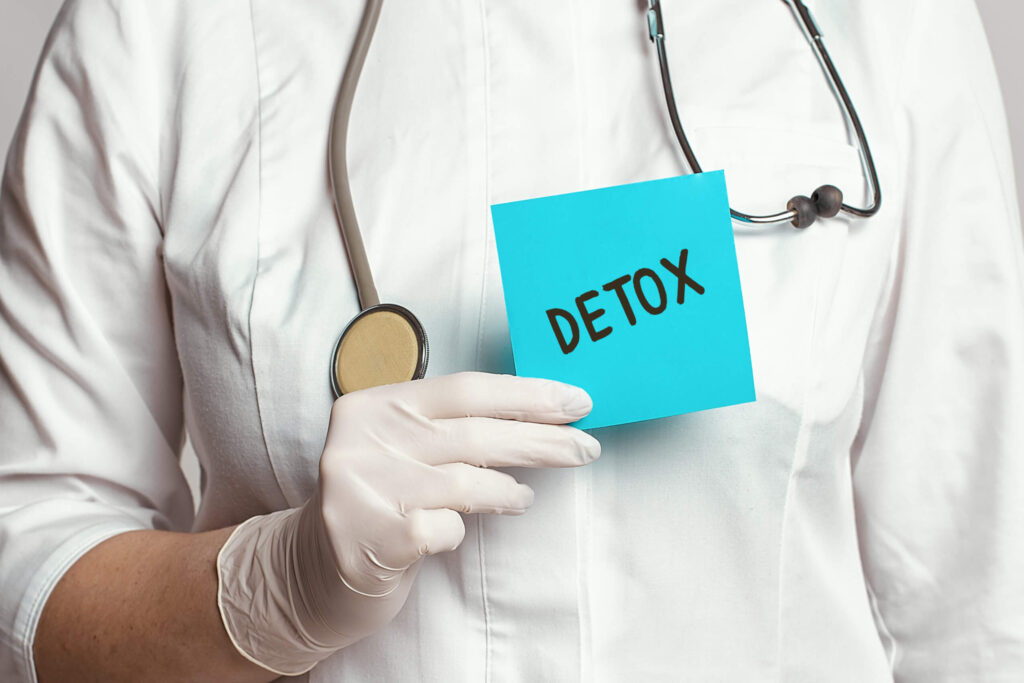
When it comes to drug and alcohol detox, the process starts with evaluating and assessing the individual’s substance abuse history and overall health. This evaluation and assessment determine the most appropriate treatment plan for their recovery. The evaluation includes various components such as medical history, substance abuse history, physical examination, mental health assessment, social and environmental factors, and assessment of motivation and willingness to change.
During the evaluation, healthcare professionals collect information about the individual’s medical history, including any existing health conditions, medications, and prior detox attempts. They also assess the individual’s substance abuse history, including the types and amounts of substances used, frequency of use, and previous treatment experiences. A thorough physical examination is conducted to identify any immediate medical concerns or complications that may arise during detox. Simultaneously, a mental health assessment can identify co-occurring mental health disorders that may impact treatment.
The evaluation also considers social and environmental factors that may influence recovery, such as the individual’s living situation, support system, and potential environmental triggers or stressors. Assessing motivation and willingness to change is essential in determining the individual’s readiness for detox and subsequent treatment. This helps healthcare professionals develop a customized treatment plan that addresses the individual’s needs and goals.
Medical Stabilization
Medical stabilization in drug and alcohol detox starts with an assessment. Assessing an individual’s medical history, substance use patterns, and overall health helps determine the care level needed. This assessment involves closely monitoring vital signs and prescribing appropriate medications to alleviate withdrawal symptoms and ensure the safety and comfort of the individual.
Medical stabilization focuses on effectively managing physical symptoms such as nausea, muscle aches, sweating, and insomnia. In severe cases, immediate medical intervention is provided. Personalization is key in medical stabilization as it is tailored to meet the specific needs of each individual, thereby ensuring effective and appropriate interventions. This approach establishes a strong foundation for successful recovery by safely navigating the challenging initial detox phase.
In the past, detoxification was carried out without proper medical oversight, resulting in high relapse rates and health risks. The recognition of the importance of addressing the physical aspects of withdrawal led to the implementation of medical stabilization by medical professionals. This has improved outcomes, increased safety, and enhanced comfort during detox. Today, medical stabilization is widely acknowledged as an essential component of comprehensive detoxification programs, providing the necessary support and interventions during the initial stages of sobriety.
Withdrawal Management
Withdrawal management for drug and alcohol detox emphasizes the safe management of withdrawal symptoms. The primary objective of withdrawal management is to minimize the risks and complications associated with withdrawal, including seizures, delirium tremens, and intense cravings. To achieve this, medical professionals carefully evaluate and assess each client. Through close monitoring and stabilization, they provide essential medications and treatments to alleviate discomfort and ensure the individual’s safety.
Evidence-based therapies address the psychological and emotional challenges often experienced during withdrawal. These therapies may include medication-assisted detox, cognitive-behavioral therapy, group therapy, individual counseling, and family therapy. By utilizing these approaches, withdrawal management aids in preparing them for ongoing addiction treatment and helps them overcome initial withdrawal barriers. It fosters a comfortable and supportive environment for recovery.
Proper withdrawal management significantly improves treatment outcomes and reduces the risk of relapse. According to the Substance Abuse and Mental Health Services Administration (SAMHSA), incorporating effective withdrawal management techniques positively impacts substance abuse treatment.
Psychological and Emotional Support
Psychological and emotional support is paramount during drug and alcohol detox. They help overcome withdrawal difficulties and tackle underlying emotional issues linked to substance abuse.
- Establishing a supportive treatment team is of utmost importance. They create a secure and non-judgmental environment for expressing thoughts and emotions openly.
- Therapeutic techniques, such as individual counseling and group therapy, help to find the root causes of addiction and develop effective coping mechanisms.
- Cognitive-behavioral therapy (CBT) assists in the identification and modification of negative thought patterns and behaviors associated with substance abuse.
- Involving family members in therapy enhances communication, addresses family dynamics, and supports recovery.
- Aftercare and support programs, including support groups and counseling services, are essential for sustaining sobriety after detox.
- Recognizing that individual needs for psychological and emotional support may differ, customized treatment plans are tailored throughout detoxification and recovery.
Implementing comprehensive psychological and emotional support within drug and alcohol detox programs helps foster resilience, develop healthier coping mechanisms, and establish long-term sobriety.
Common Treatments and Therapies
Discover the various treatments and therapies available in drug and alcohol detox. This section will provide a comprehensive overview of the common approaches used in addiction treatment, from medication-assisted detox to cognitive-behavioral therapy, group therapy, individual counseling, and family therapy. Get ready to explore the diverse range of options that can aid recovery in Tarzana.
Medication-Assisted Detox
A medication-assisted detox is an effective approach that helps overcome drug and alcohol withdrawal challenges naturally. Medication-Assisted Detox ensures a safer and more comfortable detoxification process by managing and alleviating uncomfortable and dangerous symptoms. This approach involves prescribing medications such as methadone, buprenorphine, or naltrexone based on the individual’s substance abuse history and needs. These medications reduce cravings, block opioid effects, and prevent withdrawal symptoms.
Incorporating Medication-Assisted Detox offers numerous benefits, including increased safety, reduced discomfort during withdrawal, and higher chances of successful detoxification. Medication-Assisted Detox is often combined with counseling and therapy to address the underlying psychological factors of addiction.
Cognitive-Behavioral Therapy

Cognitive-Behavioral Therapy (CBT) is an effective therapy used in drug and alcohol detox programs. It focuses on changing negative thought patterns and behaviors that contribute to addiction. With CBT, people learn coping strategies and develop skills to prevent relapse and maintain recovery. During CBT sessions, therapists help patients understand the connection between their thoughts, feelings, and behaviors. They learn to recognize and challenge negative thoughts that can lead to substance abuse. They can develop more adaptive behaviors and make better choices by reframing these thoughts and replacing them with positive ones.
CBT is conducted in individual and group therapy sessions. In individual sessions, patients work closely with their therapists to address specific challenges and develop personalized coping strategies. Group therapy provides a supportive environment to share experiences and gain insights from others. Multiple studies show that CBT is an effective addiction treatment. It significantly reduces substance abuse, improves treatment retention rates, and enhances mental health. CBT is a key component of comprehensive drug and alcohol detox programs, providing tools for long-term recovery.

Group Therapy
In a supportive and safe environment, group therapy programs explore addiction-related experiences, emotions, and challenges. In this setting, people can connect with others facing similar struggles and share their stories, reducing isolation and fostering camaraderie. Certified therapists facilitate group therapy sessions where participants engage in open communication and collaborative activities. This approach promotes learning from others, gaining different perspectives, and developing healthy coping strategies. Group therapy also fosters accountability and responsibility, as members hold each other accountable for their progress and actions in recovery.
Research demonstrates the effectiveness of group therapy in treating addiction. Those who participate in group therapy have a higher likelihood of remaining abstinent and experiencing long-term recovery compared to those who only have individual therapy.
Individual Counseling
Individual counseling is an indispensable component of drug and alcohol detox. Clients engage in one-on-one sessions with a therapist to focus on their needs and challenges. This type of therapy digs into the thoughts, emotions, and behaviors of substance abuse.
By partaking in counseling, clients gain insights into their addiction’s underlying causes and develop effective strategies for long-term recovery. Therapists utilize evidence-based approaches such as cognitive-behavioral therapy (CBT) to identify and transform negative thought patterns and behaviors associated with substance abuse. The frequency and duration of counseling sessions may vary depending on the individual’s progress and treatment plan. Nonetheless, it is recommended to have regular and consistent sessions to maximize the benefits.
Counseling provides a secure and confidential environment to express their emotions without fear of judgment. Individual counseling is pivotal in detox, equipping clients with the tools and support to conquer addiction and establish a solid foundation for sustained recovery.
Family Therapy
Family therapy is an integral component of drug and alcohol detox programs. It involves family members and addresses the impact of addiction on the entire family unit. The key focus during therapy sessions revolves around improving communication, repairing relationships, and providing much-needed support. It creates a safe space where family members can openly express concerns, frustrations, and emotions related to the addiction. Family therapy strengthens the support system while in recovery. It enhances the overall understanding of addiction as a disease and works towards reducing the associated stigma. Family members learn to set healthy boundaries, improve problem-solving skills, and foster a sober and supportive environment through therapy.
Extensive research demonstrates the significant positive impact of family therapy on treatment outcomes. It diminishes the risk of relapse and promotes sustained long-term recovery. By incorporating family therapy into drug and alcohol detox programs, a holistic approach to treatment is ensured. It recognizes that addiction affects the individual struggling with substance abuse and their loved ones. Therapy effectively addresses family dynamics, cultivating a supportive and nurturing environment that promotes long-term recovery.
When searching for drug and alcohol detox facilities in Tarzana, choose a center that offers family therapy as part of its program. This inclusion can greatly enhance the likelihood of successful recovery and assist in creating a strong support system for ongoing sobriety.
Success Factors in Drug and Alcohol Detox
Success in drug and alcohol detox relies on several factors. The motivation and willingness to change, along with the support system you have, aid your recovery. Continued care and relapse prevention strategies are essential for long-term success. But perhaps the most significant step is taking that initial leap towards recovery in Tarzana, where you can find the best practices and facilities to guide you toward a healthier and happier life.
Motivation and Willingness to Change
Motivation and willingness to change are pivotal in drug and alcohol detoxification. The detox process can be demanding without a strong desire to conquer addiction and initiate positive transformations. People with elevated motivation levels and an authentic willingness to change have a greater chance of success. Their unwavering commitment to maintaining sobriety empowers them to overcome any obstacles that may arise.
Motivation can be nurtured and reinforced. The support received from loved ones and the presence of a robust support system can greatly enhance motivation. A qualified and empathetic healthcare team can provide valuable guidance, encouragement, and customized treatment plans, significantly elevating one’s motivation. Ultimately, motivation and willingness to change are essential for accomplishing success in drug and alcohol detoxification. When combined with appropriate treatment programs and therapies, these qualities pave the way for long-lasting recovery and a more wholesome and gratifying life.
Strong Support System
A strong support system is essential during the drug and alcohol detox process. It increases your chances of success. Surrounding yourself with friends and family who provide emotional support can greatly assist in staying motivated and positive throughout detox. They can offer understanding and empathy based on their own experiences with addiction. Seeking professional help from therapists, counselors, or support groups can offer specialized guidance and expertise. Your support system needs people who can help promote healthy behaviors and lifestyles while discouraging triggers for relapse. A strong support system is needed during detox and recovery. Building and maintaining these relationships can contribute to your long-term success in maintaining sobriety.
Continued Care and Relapse Prevention
Continued care and relapse prevention help ensure successful drug and alcohol detox. Following detoxification, clients actively participate in continued care to uphold sobriety and avoid relapse. Ongoing support aids in addressing underlying issues.
To ensure effective continued care and relapse prevention, consider the following key factors:
- Support Network: Establish a robust support system comprising family, friends, and support groups. They offer encouragement and understanding and hold each other accountable.
- Therapy and Counseling: Regular therapy sessions help tackle underlying psychological and emotional concerns contributing to substance abuse. Cognitive-behavioral therapy and individual counseling are effective approaches.
- Lifestyle Changes: Implement positive alterations to one’s lifestyle to sustain recovery. This includes adopting healthy habits like exercising, maintaining balanced nutrition, and managing stress.
- Sober Living Environments: Transitioning to a drug-free environment, such as a halfway house or sober living community, reduces the risk of relapse.
- Relapse Prevention Strategies: Gain knowledge and implement strategies such as identifying triggers, developing coping mechanisms, and creating a prevention plan to decrease the likelihood of relapse.
Pro-tip: Maintaining a dedication to recovery involves actively participating in aftercare programs, attending support group meetings, and regularly communicating with your support network. Each step towards continued care and relapse prevention leads to a healthier and more fulfilling life in recovery.
Taking the First Step Towards Recovery in Tarzana
Reputable facilities in Tarzana offer comprehensive detox programs to support recovery. To start your recovery in Tarzana, find a detox facility that meets your needs. Research accredited and licensed centers. Expert staff and medical supervision are essential for providing the highest level of care during detox.
Customized treatment plans help to address your unique challenges and goals. Look for programs incorporating evidence-based therapies, such as medication-assisted detox, cognitive-behavioral therapy, group therapy, individual counseling, and family therapy. These therapies provide the necessary support to overcome addiction. Having a strong support system helps generate a more successful recovery. Surround yourself with loved ones, support groups, and professionals understand addiction. Continued care and relapse prevention strategies must be in place to ensure a seamless transition from detox to maintaining a substance-free lifestyle.
Taking the First Step Towards Recovery in Tarzana opens doors to a brighter future. You can overcome addiction and embrace a healthier life with the right detox facility and dedicated mindset. Begin your recovery today and reclaim control over your health.
Frequently Asked Questions
What is drug and alcohol detox?
Drug and alcohol detox removes toxins from the body and manages withdrawal symptoms in a safe and controlled environment. It is the first step in addiction treatment and helps overcome physical dependence on drugs or alcohol. Call Avedis Recovery at (833) 514-0579 for an assessment. We can discuss your needs and estimate your residential rehab experience.
Where can I find drug and alcohol detox facilities in Tarzana?
You can find drug and alcohol detox facilities in Tarzana by referring to local directory listings or conducting an online search. Drug and Alcohol Detox in Tarzana. Contact Avedis Recovery at (833) 514-0579 for a comprehensive assessment. We’ll evaluate your requirements and provide an estimate for your personalized residential rehab journey.
What are the benefits of choosing a luxury detox program?
A luxury detox program offers a range of benefits, including a comfortable and supportive environment, personalized care, and resort-like amenities. These programs provide the comforts of home while ensuring people receive the highest level of clinical excellence and state-of-the-art addiction treatment care. Call Avedis Recovery at (833) 514-0579 for an assessment. Let’s chat about your needs and help you get an estimate for your residential rehab experience.
How long does a drug and alcohol detox program usually last?
The duration of a drug and alcohol detox program can vary depending on individual needs and addiction severity. Detoxification typically lasts for about 7-10 days. Detox is the first step in recovery and is usually followed by additional treatment programs. Begin your recovery journey with Avedis Recovery at (833) 514-0579. Our team will assess your needs and create your residential rehab experience. Rest assured, we’ll provide a comprehensive estimate for your recovery. Take a proactive step towards a promising future today!
What is the role of an intake and evaluation process in addiction treatment?
The intake and evaluation process in addiction treatment involves a comprehensive bio-psychosocial assessment that helps determine the best course of treatment. It thoroughly evaluates the person’s medical history, substance use patterns, mental health conditions, and treatment goals. This process helps create a personalized treatment plan tailored to the individual’s needs. Contact Avedis Recovery at (833) 514-0579 to schedule an assessment. We will have a conversation about your requirements and provide an estimate for your residential rehab journey.

